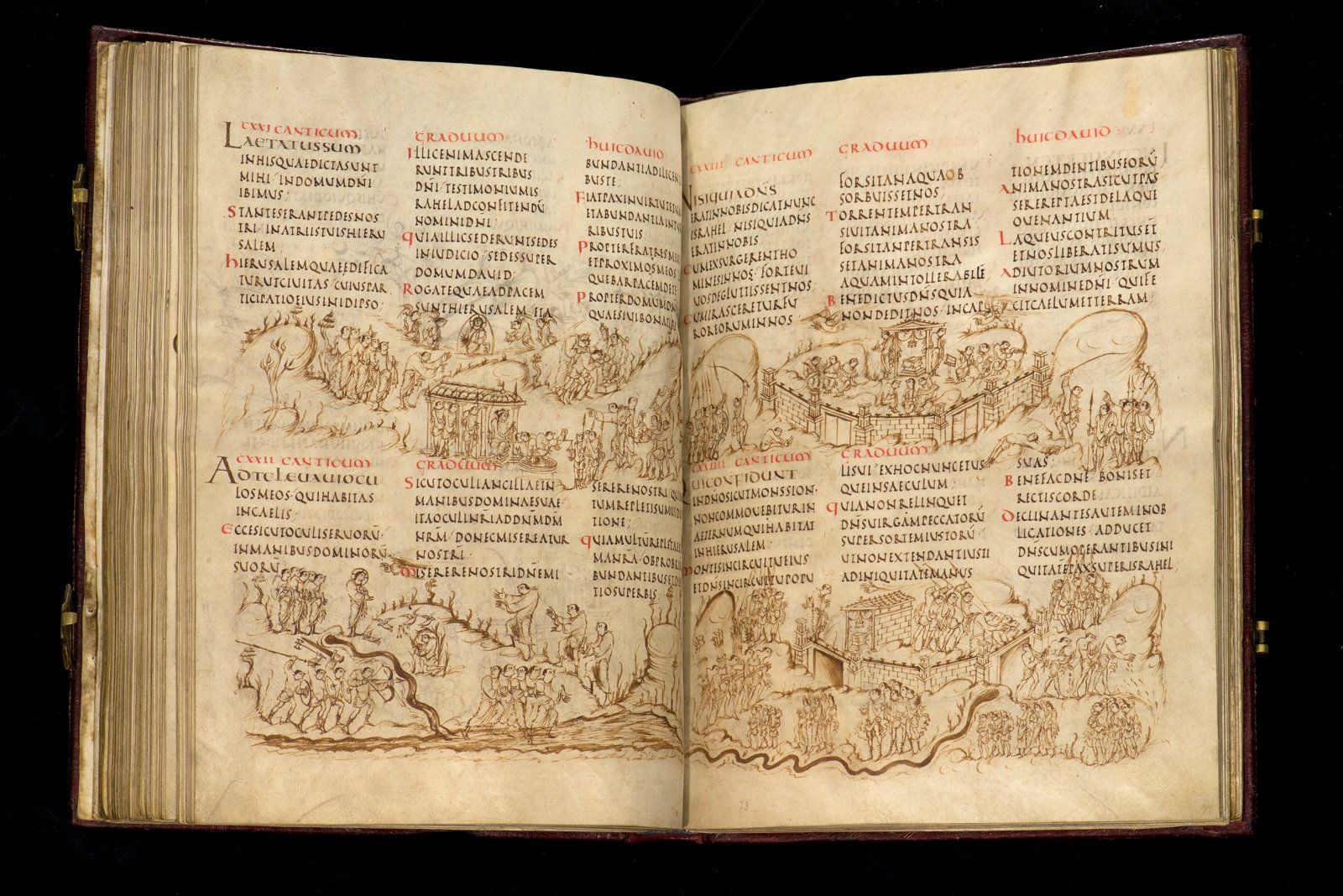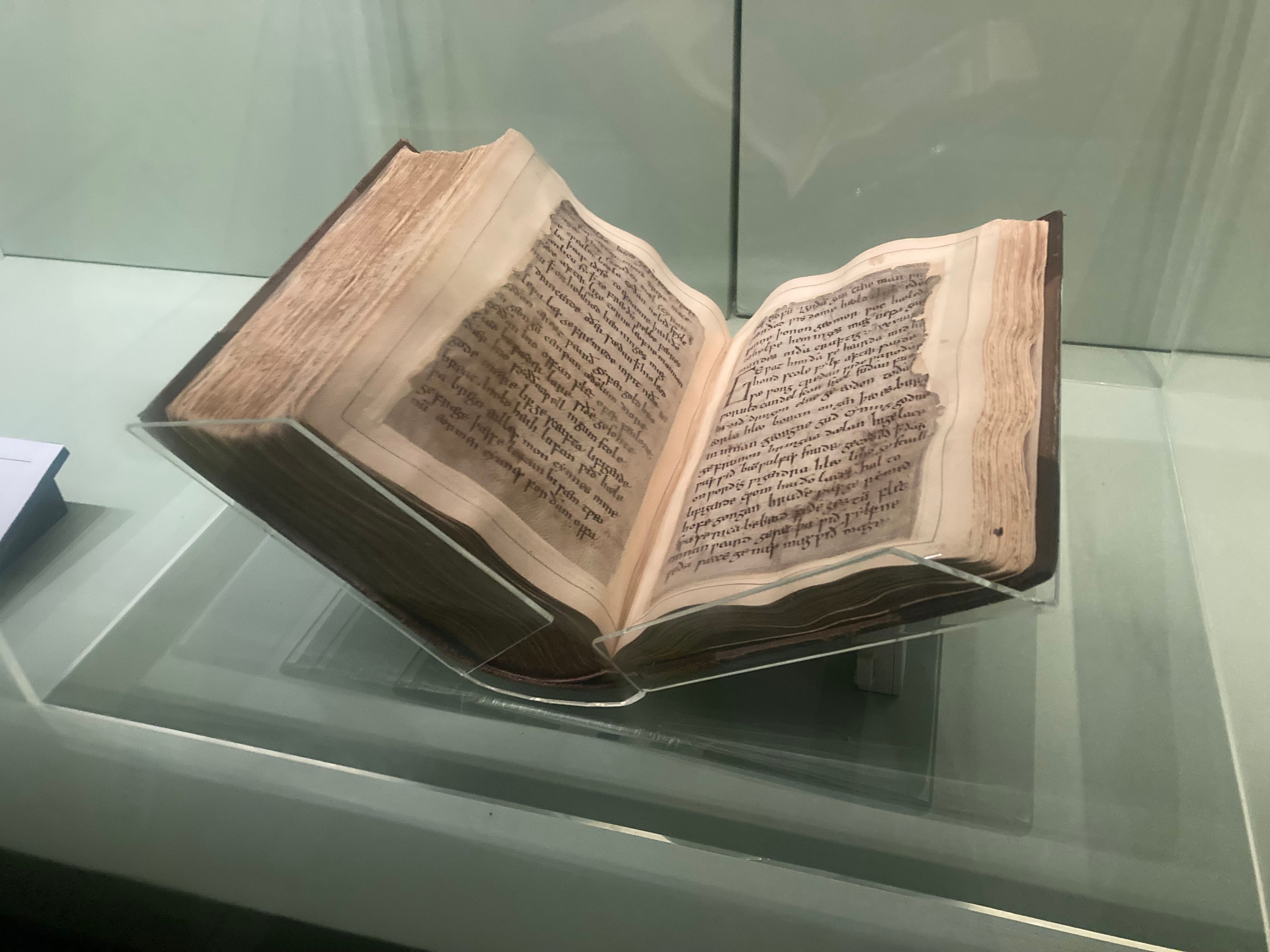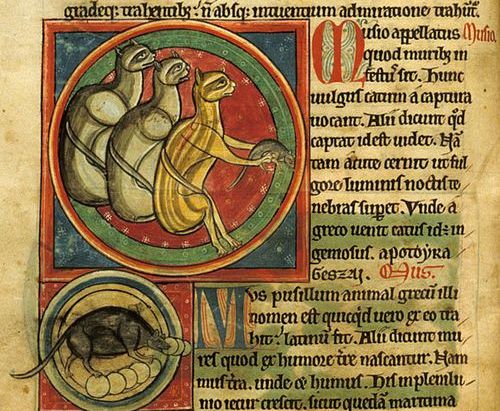The dispersal of manuscripts from the Cotton collection
The Medieval Manuscripts team is seeking an academic partner to co-supervise a PhD on the dispersal of manuscripts from the Cotton collection.
28 October 2025The Medieval Manuscripts team is seeking an academic partner to co-supervise a PhD on the dispersal of manuscripts from the Cotton collection.
28 October 2025Blog series Medieval manuscripts blog
The Cotton manuscripts, charters, rolls and seals form one of the foundation collections of the British Library. They include items such as Magna Carta, Beowulf, the Lindisfarne Gospels, and the autograph papers of British monarchs. The Cotton collection is inscribed on the UNESCO Memory of the World UK Register.

The Utrecht Psalter, formerly Cotton MS Claudius C VII, was lost from the Cotton collection in the 1600s: Utrecht, Universiteitsbibliotheek, MS 32].
During the Cotton collection’s formative years (c. 1588–1702), before being acquired by the nation, many manuscripts were dispersed from the library, for reasons that are often unclear. Some manuscripts were loaned and never returned, others were presented to other collectors, and some Cottonian manuscripts were exchanged for items held in other early collections. Among the contemporary collections that have connections with the Cotton library are those of Sir Thomas Bodley (d. 1613), Thomas Howard, Earl of Arundel (d. 1646), Sir Simonds D’Ewes (d. 1650), and the Royal library.
This project will analyse the Cotton family’s collecting priorities and ambitions for the library and investigate why they may have been willing to alienate specific items. It will centre the shaping of the collection within its contemporary political context and will question how the Cotton library may have contributed towards perceptions of British national identity. One outcome of this process may be the identification of other manuscripts that were once in the Cotton collection but are now found in other British Library collections or at other institutions, using evidence such as inscriptions, book-bindings, and early catalogues and lending lists.
Potential themes and research questions for this project include:
We are keen to develop these research themes in collaboration with the co-supervisors, and to draw upon their expertise in all aspects of collecting history and related fields. This topic is of direct relevance to the following research fields: library history, history of collecting, antiquarian studies, intellectual history, political history and the history of Parliament, cultural history.

The Beowulf-manuscript, the unique copy of the longest epic poem in Old English, on display in the British Library’s Treasures Gallery: Cotton MS Vitellius A XV.
The student will have privileged access to the Cotton manuscripts held at the British Library, to manuscripts in other BL collections (including the Harley, Arundel and Royal collections), and to the general research collection as a whole. They will benefit from our curatorial expertise and understanding of the Cotton library, and we can provide them with training in palaeography and book history.
Other training opportunities can be provided, for example, by the courses held at the London Rare Books School (Institute of English Studies, University of London). We are open to the possibility of seeking a placement for the student at another UK institution, especially one that holds other manuscripts from the Cotton collection.
Find out about the details of the application process and of our collaborative doctoral partnership scheme.
The British Library is currently advertising for academic partners to supervise four projects, to begin in October 2026. The deadline for applications is 17.00 on 28 November 2025.
Please note: the process to recruit prospective doctoral candidates will start in Spring/Summer 2026, once the academic partners have been selected. If you are interested in applying for one of these doctoral studentships, please keep an eye on the British Library’s website and on this Blog for further announcements.

This blog is part of our Medieval manuscripts series, exploring the British Library's world-class collections of manuscripts – including papyri, medieval illuminated manuscripts and early modern state papers.
Our Ancient, Medieval and Early Modern Manuscripts series promotes the work of our curators, who are responsible for these items and thousands more.
Discover medieval historical and literary manuscripts, charters and seals, and early modern manuscripts, from Homer to the Codex Sinaiticus, from Beowulf to Chaucer, and from Magna Carta to the papers of Henry VIII and Elizabeth I.

You can access millions of collection items for free. Including books, newspapers, maps, sound recordings, photographs, patents and stamps.